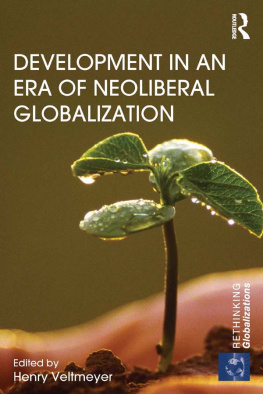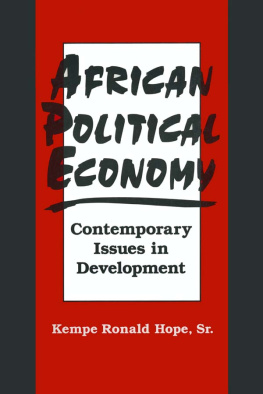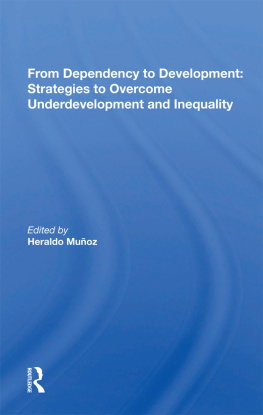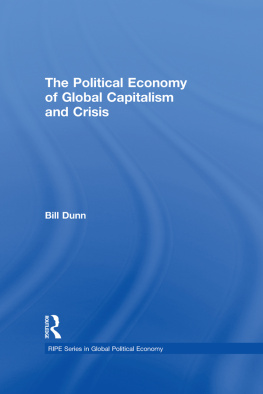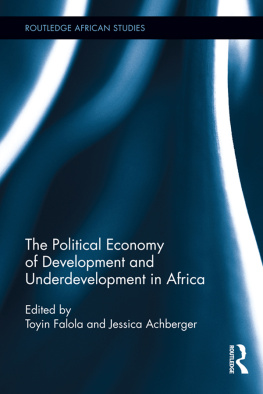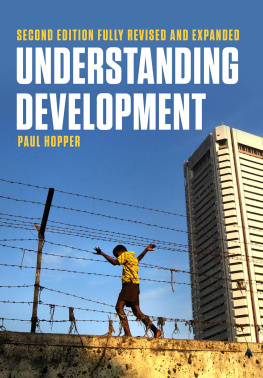MODERNIZATION AND THE CRISIS OF DEVELOPMENT IN AFRICA
Interdisciplinary Research Series in Ethnic, Gender and Class Relations
Series Editor. Biko Agozino, Cheyney University of Pennsylvania, USA
This series brings together research from a range of disciplines including criminology, cultural studies and applied social studies, focusing on experiences of ethnic, gender and class relations. In particular, the series examines the treatment of marginalized groups within the social systems for criminal justice, education, health, employment and welfare.
Forthcoming in this series
Democratic Policing in Transitional and Developing Countries Edited by Nathan Pino and Michael D. Wiatrowski
ISBN 0 7546 4719 6
Modernization and the Crisis of Development in Africa
The Nigerian Experience
Jeremiah I. Dibua
Morgan State University, USA
First published 2006 by Ashgate Publishing
Reissued 2018 by Routledge
2 Park Square, Milton Park, Abingdon, Oxon OX14 4RN
711 Third Avenue, New York, NY 10017, USA
Routledge is an imprint of the Taylor & Francis Group, an informa business
Jeremiah I. Dibua 2006
Jeremiah I. Dibua has asserted his right under the Copyright, Designs and Patents Act, 1988, to be identified as the author of this work.
All rights reserved. No part of this book may be reprinted or reproduced or utilised in any form or by any electronic, mechanical, or other means, now known or hereafter invented, including photocopying and recording, or in any information storage or retrieval system, without permission in writing from the publishers.
A Library of Congress record exists under LC control number: 2006000106
Notice:
Product or corporate names may be trademarks or registered trademarks, and are used only for identification and explanation without intent to infringe.
Publisher's Note
The publisher has gone to great lengths to ensure the quality of this reprint but points out that some imperfections in the original copies may be apparent.
Disclaimer
The publisher has made every effort to trace copyright holders and welcomes correspondence from those they have been unable to contact.
ISBN 13: 978-0-815-39055-8 (hbk)
ISBN 13: 978-1-351-15292-1 (ebk)
To the loving memories of my father, Peter Dibua and my sister, Blessing Dibua; and to my mother, Madam Okaima Agnes Dibua for her selflessness and nobility of heart
Although the writing of this book started in earnest in 2003, the ideas expressed here have greatly benefited from years of interactions with numerous colleagues, friends and students. I cannot name all of them here. I am, however, greatly indebted to them. I particularly wish to thank my colleagues in the College of Arts and Social Sciences of the former Bendel State University (now Ambrose Alii University), Ekpoma, Nigeria, where I started my university teaching career. The frank, often "brutal" and yet lively, debates we had in the weekly faculty seminar series and along the hallways greatly helped to shape my ideas. In this regard, I am particularly grateful to Bright Ekuerhare, A. C. Unomah, J. B. Webster, Onaiwu Ogbomo, Peter Egbon, Bona Chizea, Polycarp Ikuenobe, Biko Agozino and the following colleagues who are now deceased, Austen Adeoye, Frank Mowah and Ben Efoghe. At the University of Benin, Benin City, Nigeria, I benefited greatly from my discussions with colleagues in the History Department as well as those in the social sciences. I acknowledge the encouragement and support of A. D. Nzemeke, a retired Professor of History, University of Benin. I also wish to acknowledge the support and encouragement of Burney J. Hollis, Dean of the College of Liberal Arts, Morgan State University, Annette Palmer, Chair of History Department, Morgan State University, and my colleagues in the History Department, especially Rosalyn Terborg-Penn and Glenn Phillips. I thank Bana Okpu, Imounu Ikhimioya, Joseph Osagie, Owen Kalinga, Sylvia Jacobs, Tunde Adeleke and Willie Lamouse-Smith who contributed in various ways to the successful completion of this work.
I am grateful to Musa Abutudu for the very beneficial discussions we have had over the years and for his incisive comments on some of the chapters of this book. The initial draft of chapter 6 was written during an NEH Summer Seminar fellowship at the University of Illinois, Urbana-Champaign. I am grateful to the Directors of the Seminar, Don Crummey and Cynthia Radding, and fellow participants for their comments. I am also grateful to Abubakar Momoh, the subsequently named reviewer of the manuscript, for his insightful comments. I acknowledge the assistance of my graduate assistants, Frederick Kumolalo and Dana 'Yaa' Hammond in helping to locate source materials; I also acknowledge the excellent job Yaa did in the preparation of the final version of the manuscript.
I want to thank Caroline Wintersgill and Mary Savigar of Ashgate Publishing for offering me the opportunity to write this book and for their patience and encouragement during the period of writing. I am grateful to my mother, my brothers, Emman, Victor and Isaiah, and my sister, Angela, for their constant support and encouragement. Words cannot express the depth of my gratitude to my wife and children, Genevieve, Ohiremen, Ihinosen and Ohiole for their encouragement, companionship and for making the home a very warm and lively place in spite of the sacrifices they made during the writing of this book.
- ABN Association for Better Nigeria
- ABU Ahmadu Bello University
- AD Alliance for Democracy
- ADPs Agricultural Development Projects
- AFEM Autonomous Foreign Exchange Market
- AFRC Armed Forces Ruling Council
- AG Action Group
- APP All People's Party
- ASC Agro Service Centers
- ASUU Academic Staff Union of Universities
- AWU Abeokuta Women's Union
- BLC Better Life Committees
- BLP Better Life Program
- BP British Petroleum
- Bpd barrels per day
- BWAC Berlin West African Conference
- CA Constituent Assembly
- CBN Central Bank of Nigeria
- CD Campaign for Democracy
- CDA Colonial Development Act
- CDC Constitution Drafting Committee
- CDWA Colonial Development and Welfare Act
- CDWF Colonial Development and Welfare Fund
- CKD Completely Knocked Down
- CNC Congress for National Consensus
- CRC Constitution Review Committee
- DFRRI Directorate of Food, Roads and Rural Infrastructure
- DP Dynamic Party
- DPN Democratic Party of Nigeria
- ECA Economic Commission for Africa
- FAO Food and Agricultural Organization
- FEAP Family Economic Advancement Program
- FEDECO Federal Electoral Commission
- FEM Foreign Exchange Market
- FSP Family Support Program
- FSTF Family Support Trust Fund
- GBM Green Belt Movement
- GDM Grassroots Democratic Movement
- GDP Gross Domestic Product
- GNP Gross National Product
- GNPP Great Nigeria People's Party
- GR Green Revolution
- IBRD International Bank for Reconstruction and Development
- IFIs International Financial Institutions



